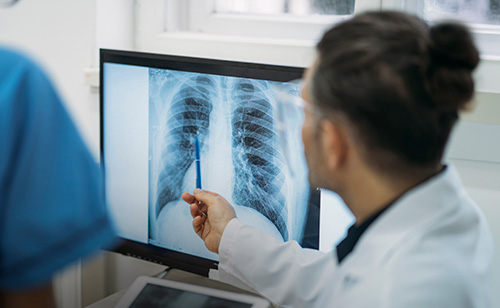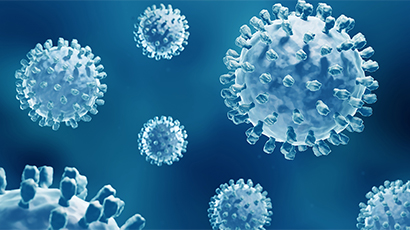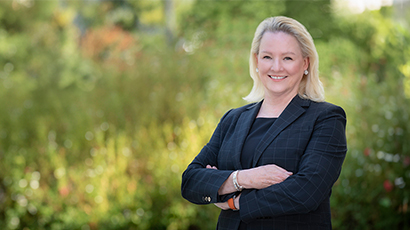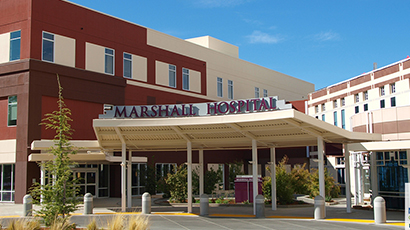Even though lung cancer is the No. 1 cause of cancer death for both men and women, relatively few people undergo screening. Only about 1% of those eligible in California are getting checked, which troubles doctors.
“We need to address this crisis,” cancer surgeon David Tom Cooke said. “People who are between 50 and 80 years of age who smoke or who used to smoke need to talk to their doctor about getting screened for lung cancer.”
Cooke, who is the chief of the Division of General Thoracic Surgery, said that new robotic procedures his team uses make life-saving diagnosis and removal of lung cancer possible during a single surgery — but patients must be screened to detect the lung cancer before it spreads.
“Most of the lung cancer patients I operate on were never screened,” Cooke said. “Many come to me only after they experience symptoms, which usually means the cancer has progressed to an advanced stage when it is harder to treat.”
UC Davis Health launches new program to increase lung cancer screening
UC Davis Health has launched a new method of comprehensive lung cancer screening with its primary care patients. The Lung Cancer, Lung Nodule Early Detection (Lung-LEAD) Clinic is part of the new lung cancer integrated service line. The goal of the Lung-LEAD Clinic is to provide dedicated “lung care navigators” to increase screening of eligible patients.
The navigators are proactively engaging with eligible patients to conduct virtual screenings. They then schedule convenient appointments for patients with health care providers to encourage them to receive a low-dose CT scan to check for lung cancer.
Low-dose CT scans take less than five minutes to complete and do not require any injections or blood draws. They’re called “low-dose” because the radiation delivered is far less than that of conventional CT scans.
“Getting a low-dose CT scan is painless and patients don’t even need to remove their clothes or shoes,” said Chinh Phan, director of the UC Davis Health Interventional Pulmonology Program. “In many ways, low-dose CT scans are much easier than getting a mammogram.”
Phan teamed up with Cooke, who is the associate physician lead of the Lung-LEAD Clinic, to raise awareness about the need for UC Davis Health primary clinics to initiate contact with patients rather than wait for patients to schedule a checkup with their physician.
“There is a stigma associated with smoking that, frankly, prevents a lot of people from bringing up lung cancer screening with their doctor,” Phan said. “There is no judgment here. Tobacco addiction is tremendously powerful and harmful. With 80% of all lung cancer tied to tobacco use, we have to talk about it openly and encourage our patients to get screened so that, if they do get lung cancer, it is caught early when there’s a best chance for it to be cured.”

As part of the new lung cancer integrated service line, UC Davis Health supplies doctors and other health care practitioners with educational materials. These increase awareness about the need for lung cancer screening and new federal guidelines that qualify patients more easily for low-dose lung cancer screening.
“We know our UC Davis Health primary care physicians are committed to their patients’ well-being,” said Kristin Mensonides, executive director of UC Davis Health integrated service lines. “They will be a key factor in the success of this new program and potentially save lives through early detection and intervention.”
UC Davis Health clinics are taking new steps to increase screening of eligible patients:
- Established patients with an upcoming primary care appointment will be flagged as eligible for screening if they are aged 50–80 and have a history of smoking.
- New patients meeting the age and smoking criteria will be flagged as eligible for screening following their first primary care appointment.
Patients whose screening through the Lung-LEAD Clinic reveals a lung nodule are quickly scheduled with specialists at UC Davis Comprehensive Cancer Center for further diagnostics. If cancer is confirmed, they are prepared for lung cancer surgery or other treatments, including potential enrollment in innovative clinical trials.
“Early detection of lung cancer through a screening low dose CT scan offers vital advantages,” said Jonathan Reiss, medical director of Thoracic Oncology and the physician lead for the Lung-LEAD Clinic. “By identifying potential early-stage lung cancer before symptoms arise and it spreads, we can bring to bear timely interventions and treatments such as surgery or focused radiation, thereby improving the chance of a cure. Our multidisciplinary team will work diligently to make sure our patients will get timely, leading-edge treatments by our lung cancer experts.”
A new lung cancer survivorship and surveillance program is also in place for those who do go through treatment.





